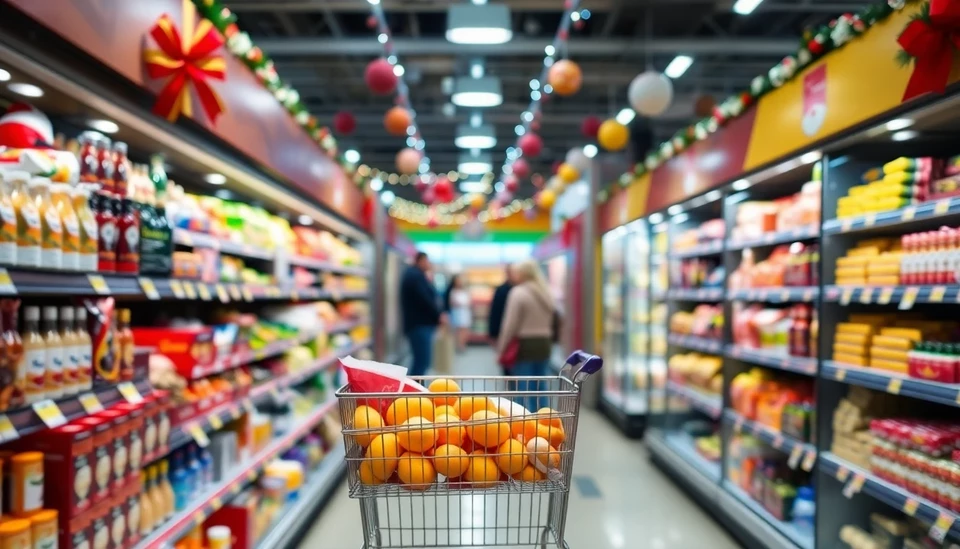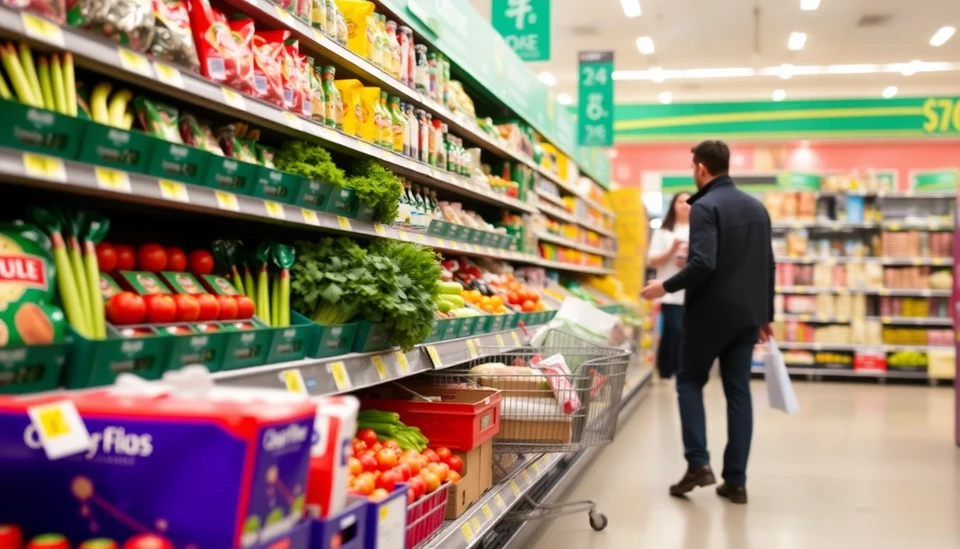
Recent data has revealed a notable increase in grocery inflation across the United Kingdom, primarily attributed to consumers indulging in a holiday shopping spree during the Christmas season. According to statistics released on January 7, 2025, the annual rate of grocery price increases has surged, reflecting a rise in costs that has caught the attention of economists and consumers alike.
The latest figures indicate that grocery prices are now climbing at a rate of 14.5%, a significant jump compared to previous months. This inflationary trend has been primarily driven by heightened demand for festive food items and other seasonal products as consumers sought to create memorable holiday experiences. Many households opted to splurge on premium goods and specialty items, contributing to the overall increase in grocery expenditure.
Market analysts suggest that the rise in food prices is a complex phenomenon, influenced by various factors including supply chain disruptions, increased manufacturing costs, and lingering effects from inflation experienced in recent years. Shoppers have responded by adjusting their purchasing habits, often seeking discounts or opting for more budget-friendly alternatives amidst the backdrop of escalating prices.
The grocery sector has seen a marked shift in consumer behavior, with many individuals leaning towards both local and online retailers to fulfill their holiday needs. The surge in online shopping during this period has also played a role, with many turning to grocery delivery services to save time and effort. Retailers have responded with targeted promotions designed to attract shoppers looking for deals amid rising costs.
As the festive season concludes, experts are closely monitoring the impact of this inflation on consumer spending in the broader economy. While the Christmas surge has driven short-term boosts in sales for many supermarkets, there are concerns about the sustainability of these spending patterns going forward. Persistent inflation may lead to reduced discretionary spending in the upcoming months, particularly as households face higher costs across various sectors.
Looking ahead, economists predict that certain food prices may stabilize, though volatility appears to remain a fixture in the current market landscape. The challenge for retailers will be to navigate these fluctuating costs while still appealing to consumers who are increasingly budgeting for their groceries in the wake of recent price hikes.
In conclusion, the rise in grocery inflation in the UK as a result of the Christmas shopping season serves as a stark reminder of the economic challenges facing consumers. As households pack away their holiday decorations, many will be left contemplating how to adjust their grocery budgets in the New Year while managing the impacts of ongoing inflation.
#GroceryInflation #UKEconomy #ChristmasShopping #ConsumerTrends #HolidaySpending #EconomicImpact #RetailAnalysis
Author: Rachel Greene
